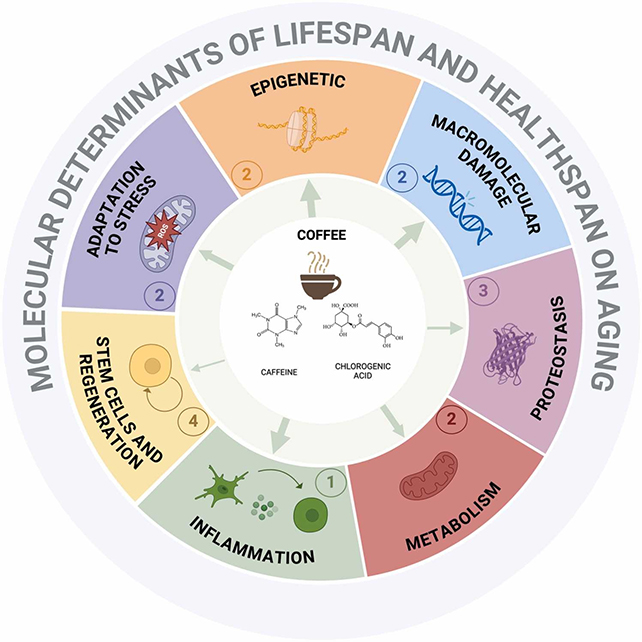
Many of us enjoy a cup of coffee (or four) to perk up during the day, and new research offers evidence that the popular beverage may bring numerous benefits along with it – including potentially the chance of living a longer, healthier life, researchers suggest.
A team from the University of Coimbra in Portugal looked at 85 previous studies involving participants across Europe, the Americas, Australia, and Asia, analyzing coffee's relationship to mortality rates and health indicators.
Taken as a whole, their analysis suggests that drinking around three cups of coffee a day is linked with an additional 1.84 years of lifespan in the average person, with regular consumption also being associated with increased healthspan (time spent living free from serious disease).

"Traditional clinical recommendations have at times overlooked coffee's role in healthy aging," says neuroscientist Rodrigo Cunha from the University of Coimbra.
"Our review underlines the role regular, moderate coffee consumption can play in mediating against the biological mechanisms which naturally slow or fail as we get older – triggering a range of potential health issues and comorbidities."
With so many studies included here, there are a lot of variables – such as the types of coffee consumed, the demographics of the people involved, and the study lengths. Benefits will differ between individuals, and it's likely that those benefits aren't solely down to coffee.
However, there is a slight but noticeable relationship across these studies between drinking coffee and improved health. With hundreds of thousands of volunteers involved in total, the breadth of the research is one of its strengths.
Health indicators such as inflammation and metabolism were analyzed, while the researchers also made allowances for factors like smoking and alcohol consumption to better isolate the effects of coffee drinking.
"Regular coffee consumption seems associated with a preservation of muscular, cardiovascular, mental and immune system functions," write the researchers in their published paper, "and seems inversely associated with the incidence of the most frequent diseases affecting the elderly such as cardiovascular and respiratory diseases, stroke, some cancers, diabetes, dementia, major depression, or frailty."
It's important to note many of these studies involved self-reported coffee consumption, and the research was funded by the Institute for Scientific Information of Coffee – a non-profit organization supported by major international coffee companies.
This also doesn't prove a direct cause-and-effect link – there are too many other factors potentially involved to say coffee and caffeine are solely responsible for a longer life and better health.
These statistics do fit in with previous research though, showing how coffee can potentially protect against heart disease, offset the negative effects of sitting, and add years to your life.
"We know that the world's population is aging faster than ever, which is why it's increasingly important to explore dietary interventions that may allow people to not only live longer but also healthier lives," says Cunha.
The research has been published in Ageing Research Reviews.